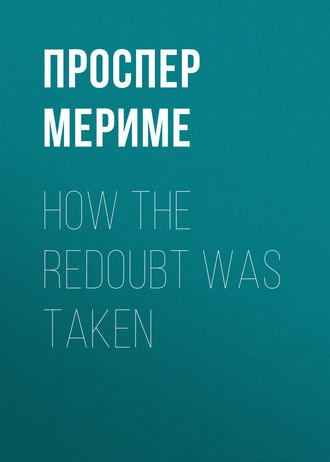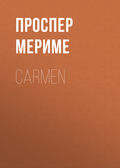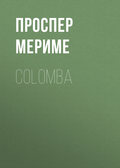
Проспер Мериме
How The Redoubt Was Taken
I laughed skeptically; most people would have done the same; but most would also have been struck, as I was, by these prophetic words. But, conscript though I was, I felt that I could trust my thoughts to no one, and that it was my duty to seem always calm and bold.
At the end of half an hour the Russian fire had sensibly diminished. We left our cover to advance on the redoubt.
Our regiment was composed of three battalions. The second had to take the enemy in flank; the two others formed a storming party. I was in the third.
On issuing from behind the cover, we were received by several volleys, which did but little harm.
The whistling of the balls amazed me. "But after all," I thought, "a battle is less terrible than I expected."
We advanced at a smart run, our musketeers in front.
All at once the Russians uttered three hurrahs—three distinct hurrahs—and then stood silent, without firing.
"I don't like that silence," said the captain. "It bodes no good."
I began to think our people were too eager. I could not help comparing, mentally, their shouts and clamor with the striking silence of the enemy.
We quickly reached the foot of the redoubt. The palisades were broken and the earthworks shattered by our balls. With a roar of "Vive l'Empereur," our soldiers rushed across the ruins.
I raised my eyes. Never shall I forget the sight which met my view. The smoke had mostly lifted, and remained suspended, like a canopy, at twenty feet above the redoubt. Through a bluish mist could be perceived, behind the shattered parapet, the Russian Grenadiers, with rifles lifted, as motionless as statues. I can see them still,—the left eye of every soldier glaring at us, the right hidden by his lifted gun. In an embrasure at a few feet distant, a man with a fuse stood by a cannon.




